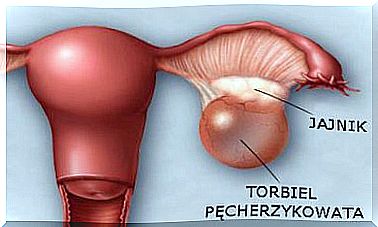The Importance Of Magnesium – A Mineral With Many Properties

Magnesium, like calcium and phosphorus, is a mineral with versatile properties. The main but not the only job of magnesium is to balance the energy of the neurons.
How does the body achieve this balance? It is quite simple. This chemical element, necessary for the proper functioning of the human body, not only stimulates but also calms our body.
This mineral is also a key factor in supporting our mental well-being. People who are exposed to high levels of stress that they do not cope well with tend to be magnesium deficient .
This element can be found in most green leafed products, vegetables, especially cocoa, almonds, soy flour, peanuts, hazelnuts and walnuts.
It should be noted that despite its amazing properties, this mineral is not as popular as other nutrients. Today, we would like to emphasize its great importance for the well-being and balance of the human body. We hope that we will be able to properly draw your attention to this element important for health.
The importance of magnesium in the body
About 50% of the magnesium in our body is found in our bones and tissues.
Its functions include the following:
- Energy release
- Hormone production
- Strengthening the bones
- Blood pressure regulation
- Regulation of blood glucose levels
- Maintaining the proper functioning of the immune system
- Participation in the process of creating proteins
- Participation in muscle contractions and relaxation (including the heart)
The benefits of magnesium
Detoxifying action, i.e. detoxification
Magnesium has a detoxifying effect. This means that it prevents damage caused, among others, by heavy metals and all kinds of toxins.

In addition, magnesium is essential for the synthesis of glutathione. Believe it or not, it is one of the most important antioxidants as it protects cells from damage.
Magnesium reduces the feeling of tiredness
Your body uses magnesium to release energy. Basically, it helps provide energy at the cellular level. For this reason, when the body is deficient in this mineral, fatigue is usually the first and most characteristic symptom.

It calms and relaxes
Your magnesium level affects the quality of your rest
Magnesium helps ensure overall well-being. This mineral controls our circadian rhythm or our biological clock.

How it’s working? Magnesium regulates our biological clock. In this way, the right amount of this element in the body fights insomnia and keeps our nerves in check.
It helps to relieve muscle pain
In addition, magnesium is responsible for the proper contraction and relaxation of every muscle group in our body, including the heart.
It helps to prevent spasmodic conditions and the accompanying muscle pain. For this reason, athletes and their physiotherapists pay special attention to the appropriate level of magnesium in the body.
It cares for the health of your bones
Magnesium is one of the most important minerals for the health of our bones. This is due to its influence on the activity of osteoblasts and osteoclasts. In addition, it also helps to maintain proper bone density.

This means it is a wonderful mineral that has been used successfully in both combating and preventing bone loss, i.e. osteoporosis. Magnesium also helps to balance vitamin D blood levels.
Magnesium deficiency – does it affect me?
It is possible that you are not getting enough of this mineral to your body or for some reason it is too low. This could be caused by a history of infections, damage from radiation therapy, dairy intolerance, celiac disease or Crohn’s disease, among other things.
Usually, when a person is deficient in magnesium, they show the following symptoms. However, other factors such as age, health, and weight should also be kept in mind.
- Tiredness
- Insomnia
- Trembling
- Increased blood pressure
- Difficulty concentrating
- Abnormal levels of other elements: calcium or potassium
- Weakness or lack of energy
- Nervousness (and restlessness, especially in people suffering from anxiety disorders)
If you experience these symptoms frequently, we recommend that you speak to a doctor who will assess your health and possibly order some necessary tests. Only he will be able to determine what the problem is and how to properly and effectively treat it.









